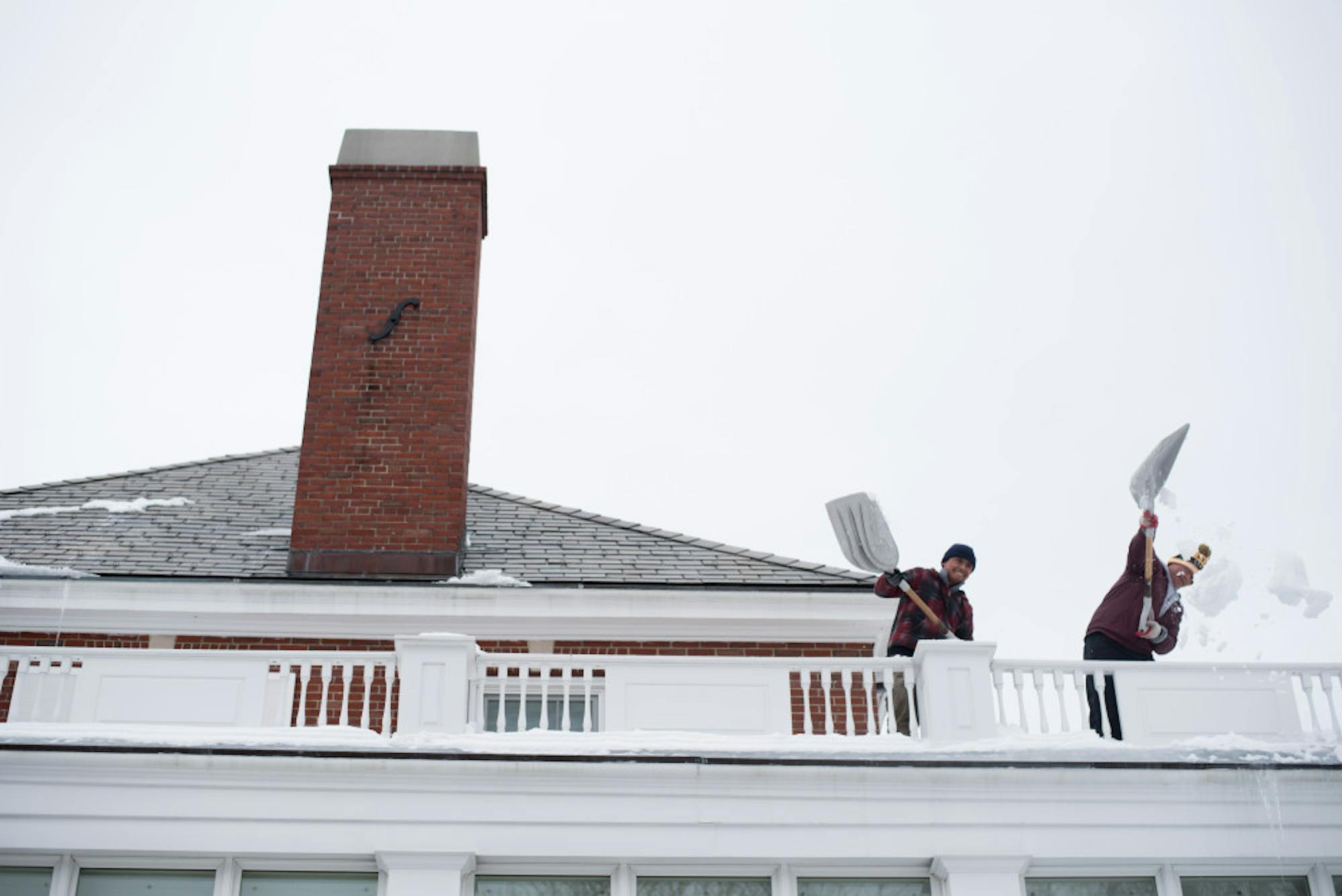Successive bouts of snowfall in the wake of Winter Storm Juno, which hit New England at the end of January, have left large deposits of snow on rooftops across campus, causing an increased risk of leaking and damage to facilities.
Director of Facilities Operations David Nelson explained that the periodic melting and refreezing of snow on rooftops drives water back under shingles. This water then finds its way under built-up roofing and into the building.
“As much as we try to eliminate roof leaks, there are times when, due to the melting and re-freezing of the snow, ice dams can form,” Nelson told the Daily in an email.
Tufts Facilities Services Department is trying its best to counter problems pertaining to roof leakage or damage, according to Senior Director of Facilities Steve Nasson.
For example, due to the accumulation of snow and ice on its roof, Tisch Library has experienced some leaking around its skylights, according to Director of Tisch Library Laura Wood.
“We are reporting issues to university operations for their assistance and repair," Wood said in an email. “Pragmatically we are attempting to catch any active dripping with containers. This is quite an extraordinary winter.”
The safety of the students, faculty and staff is the number one priority when dealing with storms and their aftermath, Nasson noted.
“We were very lucky, if you consider extreme cold lucky, during these storms as the cold has kept the consistency of the snow light and fluffy,” he said.
Both Nasson and Nelson confirmed that over the past few days, Facilities Services has relied on assistance from qualified and certified roofing contractors to avoid potential problems, including roof leaks, ice dams and equipment obstruction.
“We have engaged the services of a professional structural engineer who will validate the Tufts building design and structural loads of existing conditions in order to determine what actions, if any, need to be taken,” Nasson said.
Doug Fernald, manager of Walnut Hill Properties, a property management company that is part of Tufts University Operations division, also noted the danger of the long icicles that have formed around campus.
“Pedestrians must use their common sense [and know] not to stand under them, [or] else they might get hurt,” he said.
The management of Walnut Hill Properties started dealing with the icicles as soon as they became apparent on their university-owned rental apartments, according to Fernald.
“We immediately hired a contractor, and he assigned his team to clean off icicles and snow off roofs,” he said. “At this point, we have a lot of icicles under control, so the progress is satisfactory.”
According to Fernald, his contractor's team mainly used snow rakes and snow melt for snow-capped roofs.
“Icicles normally do not cause any building structural damage,” Nelson noted. “Obviously, they can cause bodily injury if they fall and hit someone.”
Nonetheless, Facilities Services has been working to do its best to ensure no one is hit by a falling icicle, according to Nasson.
“What we have been doing is proactively removing icicles from areas where pedestrians could be harmed,” he said.
Facilities Services has procured the use of a bucket truck so that it can respond immediately to any reported issues of excessive snow and ice accumulation, according to both Nelson and Nasson.
Beyond Tufts, the Massachusetts Emergency Management Agency (MEMA) received 153 reports of collapsed and damaged buildings across the state between Feb. 9 and Feb. 23, according to their website. In a joint public safety report issued on Feb. 19, MEMA advised all citizens of the state to take the necessary precautions to prepare for the storm and manage the aftermath.
Snow cleanup, including icicle removal, continues across campus

Facilities workers clear snow from various campus locations.





